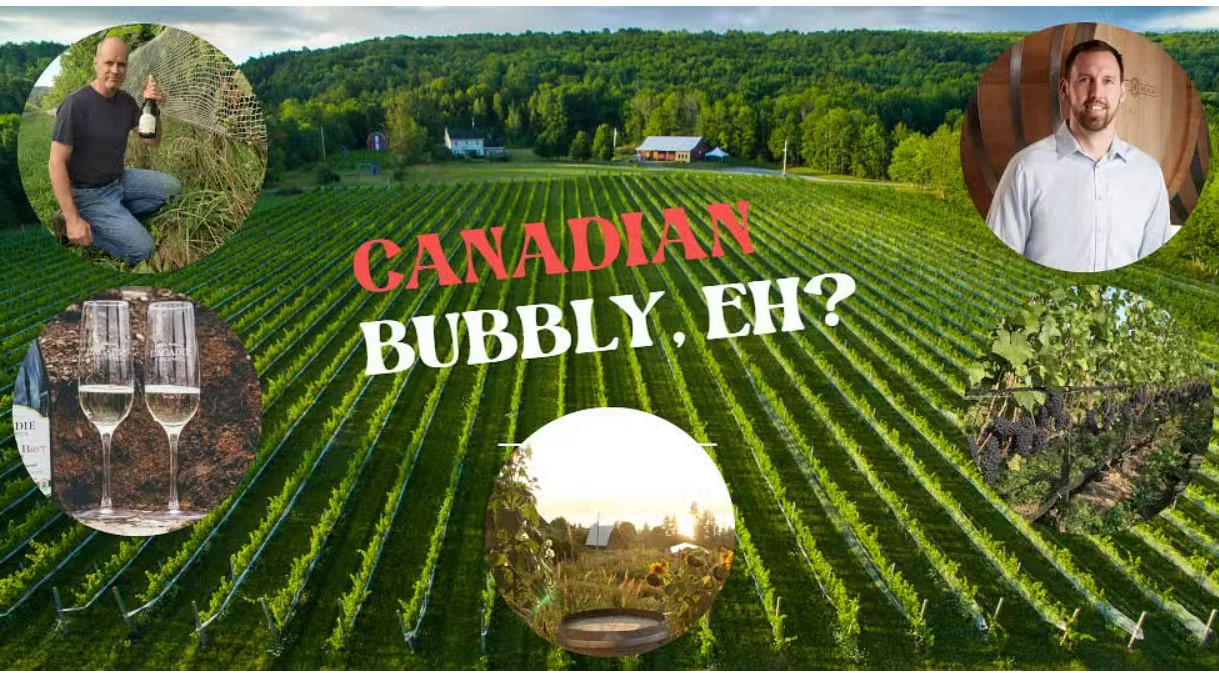L'Acadie Vineyards Blog
Welcome to the L'Acadie Vineyards blog and winery news
Vegan, organic, geothermal, natural - L'Acadie Vineyards keeps it green - via Saltwire by Bill Spurr
Great article about our environmental efforts to produce organic and vegan wines!
"L’Acadie’s supplier of corks for its bottles of sparkling and still wines has calculated that the Gaspereau Valley winery was responsible for the sequestration of “a whopping” 10 tonnes of carbon dioxide in 2022 because it uses only natural cork."
Full story on Saltwire by Bill Spurr
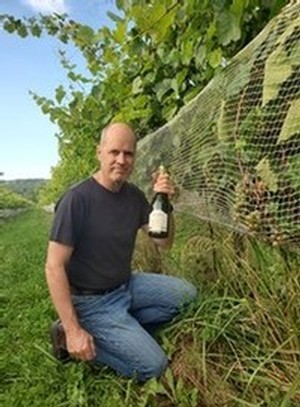
Environmental benefits of using cork
Honoured to receive this award from Amorim Cork, our cork supplier. A whopping 10 tonnes of carbon dioxide sequestered from our use of cork in 2022!
We are proud to give you this honor and please feel free to share with your team or customers your carbon retention number! This number has been independently validated by Pricewaterhouse Coopers and/or Ernest and Young. The findings, are the only ones to date that underwent a multi-closure comparative peer review, indicating when considering sequestration by the ecosystem made feasible by the cyclic extraction of cork, a retention capacity up to 288 grams of CO2 is associated with every natural cork stopper and as much as 562 grams with a sparkling wine stopper, in stark contrast to the CO2 emissions to each plastic stopper (up to 14.8 g/sealant) and to aluminum caps (up to 37.2 g/cap). To find out more about the sustainability studies and on going efforts Amorim is making on your behalf please visit the following link here.
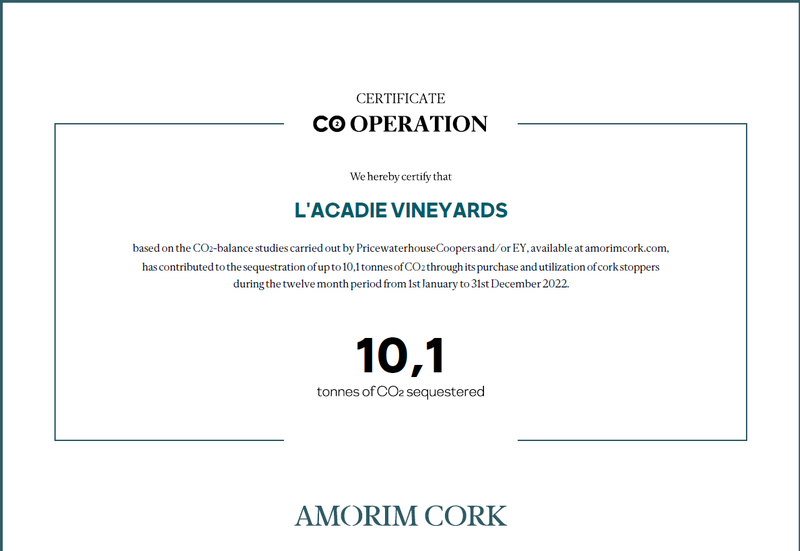
World Animal Day October 4
<iframe width="560" height="315" src="https://www.youtube.com/embed/Zh0N38Hnwsg" title="YouTube video player" frameborder="0" allow="accelerometer; autoplay; clipboard-write; encrypted-media; gyroscope; picture-in-picture; web-share" allowfullscreen></iframe>
Earth Day- be a part of the solution
Earth Day: April 22
Atmospheric CO2: 420ppm
We all want to be part of the solution to help Mother Earth. If you were born in the 60’s, atmospheric CO2 was 320ppm, now it’s 420ppm. We are on the wrong path, as NASA describes in this dramatic graph.
L'Acadie Vineyards makes organic and vegan wines, from soil to glass, for people who care. Delicious healthful wine that you'll be proud to serve for memorable occasions knowing that you are part of the solution.
It's simple to get our wines to be a part of the solution today,
- Choose our organic wine – look for the Canada Organic symbol on the bottle, every one of our wines has it. It means rigorous inspections, transparency and traceability
- Buy at wine bars and restaurants, private wine stores, online, direct from our Gaspereau winery, and NSLC
- Enjoy our delicious organic wine with friends and family along with organic food. Share your experience to amplify your impact for change.

Here is the difference you’ll be making. When you purchase organic food like our organic vegan wine you are contributing to a greener planet.
- Grapes are one of the dirty dozen – 12 fruits and vegetables that are heavily sprayed with pesticides and you can avoid those residual pesticides in your wine by buying organic.
- Pesticides can contaminate groundwater and poison your community’s drinking water.
- Our vegan wines certified by Biocyclic Vegan International don’t use animal manures in growing grapes or the many animal ingredients commonly used for winemaking. Large scale livestock farming has been proven to generate 14% of greenhouse gases.
Make a difference today. Be a part of the solution for Mother Earth and enjoy delicious wine today. We've done the hard work so it's easier for you.
Order here
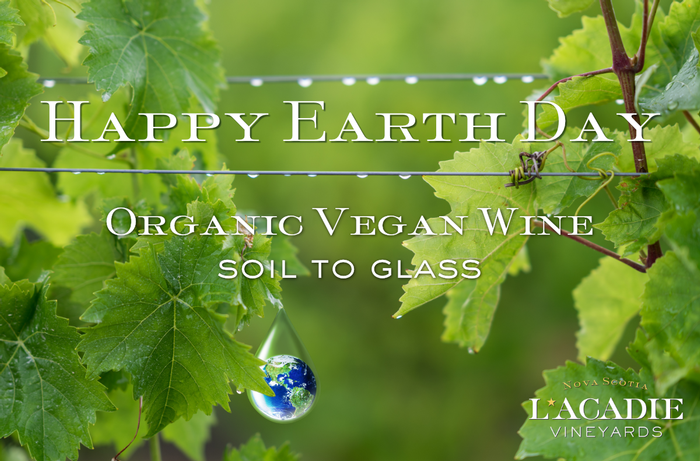
Climate Change and Nova Scotia sparkling
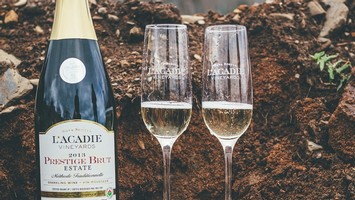
I was recently asked to sit on a panel about the effects of climate change to the Nova Scotia wine industry. This request adds to a significant increase in focus lately - there are new research proposals on how vineyards can be more resilience, trade conferences like Tasting Climate Change, and of course much research into the February Polar Vortex event...which interestingly happened after the panel topic was chosen.
I plan to discuss organic farming and the benefits of resilience. And then share data and trends of grape maturity for sparkling wine.
Organic Viticulture
Organic viticulture, the practice of growing grapes without synthetic chemicals, can make a vineyard more resilient to climate change in several ways:
- Improved soil health: Organic viticulture relies on the use of natural fertilizers and soil amendments, which can improve soil structure and water-holding capacity. This means that the soil can retain more moisture during droughts and absorb excess water during heavy rains, reducing erosion and soil compaction.
- Improved mycorrhizal fungi networks: living soils are optimized in an organic system – pesticides, synthetic fertilizers and excessive tillage reduce populations. The expanded influence by this network to the root zone allows vines to source more nutrients to have higher tissue sugars for cold hardiness and disease resistance.
- Biodiversity: Organic vineyards typically encourage biodiversity by providing habitat for insects and other wildlife. This can help to create a more resilient ecosystem that is better able to adapt to changes in climate and weather patterns.
- Reduced carbon footprint: Organic viticulture often involves the use of more sustainable practices, such as cover cropping, reduced tillage, and the use of natural pest management strategies. These practices can help to reduce the carbon footprint of the vineyard, which can contribute to mitigating the effects of climate change.
- Resilient grape varieties: Organic viticulture may favor grape varieties that are better adapted to the local climate and soil conditions. This can result in a more diverse and resilient vineyard that is better able to withstand extreme weather events such as drought, heatwaves, or cold snaps.
Overall, organic viticulture can help to create a more sustainable and resilient vineyard ecosystem, which is better equipped to adapt to the challenges of climate change.
Sparkling Mecca
The 2010 growing season was the first time I felt heat that reminded me of my previous sparkling career in the Okanagan Valley of British Columbia. We had moved back to Pauline's home province in 2004 to make sparkling wine in a better climate for the style. Coincidently, that year corresponds closely to what researchers in our region identify as the start of the effects of climate change, and it marked our second vintage to earn medals at Effervescents du Monde in France.
Read more about the contrasts of making sparkling wine in the two regions.
/blog/Vintage-2022-and-Climate-Change-in-Nova-Scotia
Moderate sugars, acid retention and brown lignified (ripe) seeds are the characteristics of a world-class sparkling region, and Nova Scotia has it! As it gets warmer, though, we have been watching acidity more closely and adjusting pick dates to keep optimal freshness. See below for data from 14 years of harvesting Prestige Brut Estate from the same block showing that we have been not only maintaining freshness but also slightly trending higher acidity.
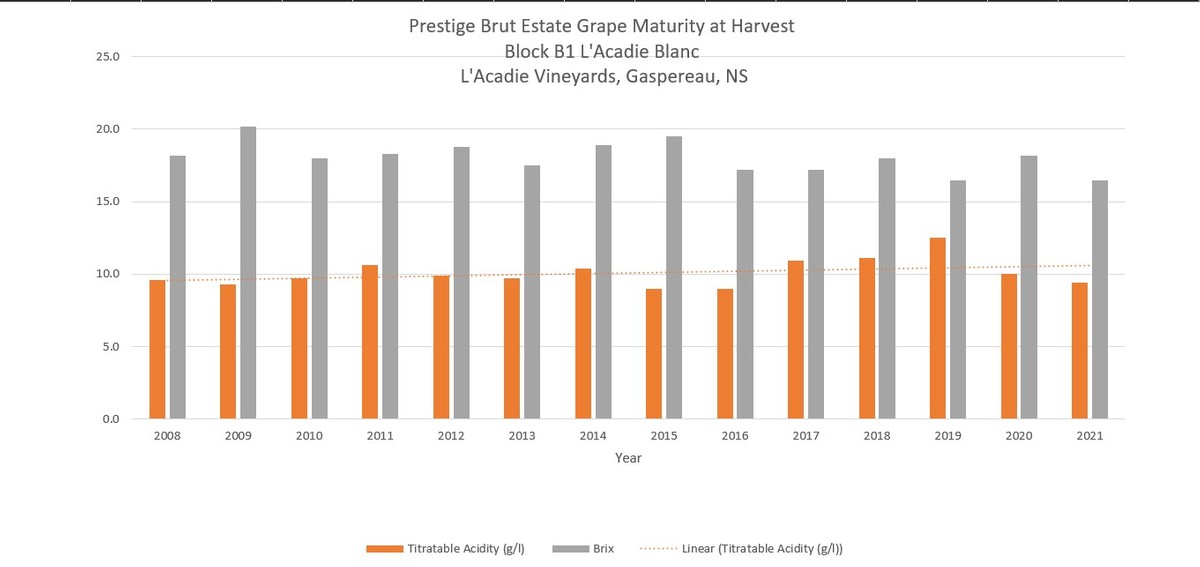
Other strategies to retain freshness in a warming climate is to prune for more crop....more grapes per vine tends to increase acidity and lower sugars at harvest. There are limits though. Champagne regulations usually have an upper limit of 10-12 tonnes per hectare, approximately 4-5 tonnes per acre, and many growers crop even higher and sell the unusable excess to distillers. But at these crop levels and higher there can be impacts on flavour and, to a lesser degree, possible nutrient deficiencies in the juice causing fermentation problems. Remember we are still striving for ripeness, and what works in Champagne might not work here in Nova Scotia. Most of the vintages listed above were cropped at 3-4 tonnes per acre, which matched our terroir of rocky well-drained soil with about 8 inches of humus-rich top soil in the block where we grow Prestige Brut Estate. And all years had brown seeds, ripeness!
Transparency and Sustainability: the benefits of choosing certified organic and vegan wines
Transparency and Sustainability: the benefits of choosing certified organic and vegan wines
Welcome to our blog! We are passionate about certified organic and Biocyclic Vegan wines, and committed to sustainability and transparency in everything we do. Discover why our award-winning wines are a must-try for health-conscious wine lovers.
Ingredients
Transparency is a cornerstone of certified organic and certified Biocyclic Vegan wines, backed by rigorous inspections of grape growing and winemaking, to inform you of what is not in your wine. The Canadian Organic Standard prohibits genetically modified ingredients, synthetic pesticides and synthetic fertilizers, and the Biocyclic Vegan International Standard prohibits animal inputs in the vineyard and winemaking. This effectively eliminates many common ingredients and since nutritional information and ingredient declarations are not required for wines, certified organic vegan wines are your only guarantee of what wasn’t added to them.
The certification logos on labels are your guide to choose wisely. You can also view our list of organic wines at our certifier’s site,

Health
Lower alcohol in cool climate wines offers a health advantage, another benefit of buying local. Add the health benefits of organic wines and you have a winning combination! You avoid synthetic pesticide residues - yes, every spray in the vineyard makes it into your glass, and preservatives such as potassium sorbate. Sulfite is naturally occurring, produced by yeast, and organic winemakers can only adjust sulfite levels to half the maximum in federal standards.
Alcohol and Wine - new Canadian alcohol consumption recommendations
Social Change and Environment
Biocyclic Vegan standards start in the vineyard compared to other vegan certifications that just focus on winemaking. These wines are vegan from soil to glass, and not using animal manures is a clear message to oppose conventional livestock practices. Composted grape pomace, left over after pressing, is alternatively used to create a humus-rich soil teeming with beneficial microbes - a living soil that supports vine health.
Cover crops and no-till practices, a pillar of organic agriculture, promote living soils and better nutrients, and mounting information indicates that carbon-holding benefits can lessen global warming.
Water and air quality benefits from organic practices are well proven. Nanotechnology is prohibited because these engineered substances in food and packaging can add to the problems of plastics in our water systems and our health..
~~In vino veritus

